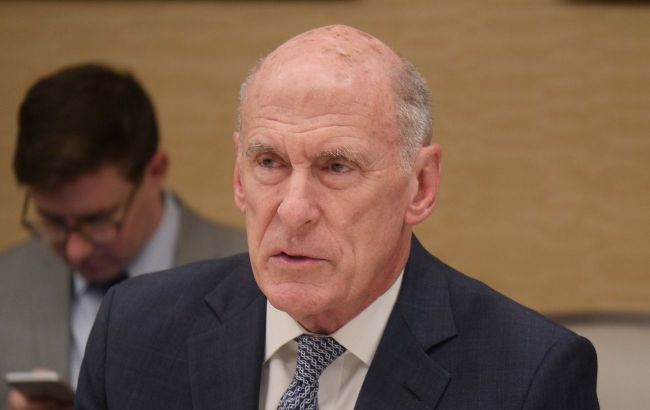Former head of intelligence in Trump administration supports increasing aid to Ukraine
 Former Director of National Intelligence in the Trump administration, Dan Coats (photo: wikimedia.org)
Former Director of National Intelligence in the Trump administration, Dan Coats (photo: wikimedia.org)
Former Director of National Intelligence in the Trump administration, Dan Coats, has supported the approval of increased US aid to Ukraine. In his opinion, now is not the time for political games, according to an article by the politician in The New York Times.
According to him, lawmakers who oppose increasing aid to Ukraine to focus on US needs are making a wrong choice.
"The choices facing America are always based on the same foundation: what best serves our nation. The choice is not America first or something else first. America is always first. The real question, in this complicated and uncertain world, is what course of action will most likely serve our core national interests - security and economic prosperity," wrote Coats.
He also added that these interests are closely linked to the strength of global alliances and the international system of law and cooperation of the US, in which American democracy survives and thrives. The strength of these networks, according to the politician, in turn, depends on our role as a reliable ally and friend, our authority, and - frankly speaking - our honesty.
Coats believes that Ukraine's efforts to defend itself against Russian invasion are the cheapest way to reduce the Kremlin's military presence and ensure security for the US and its allies.
"In blunt dollar terms, helping Ukraine in that defense is, by far, the least expensive way to weaken Russia’s military and discourage Russian aggression, thereby protecting ourselves and our allies," the politician wrote.
Putin's victory will increase defense spending
According to Coats, if Russian President Vladimir Putin succeeds, concerns in Europe will grow, along with defence spending in the region.
"The expectation of the next possible phase of Putin's campaign to restore Russian hegemony of the Cold War era will force NATO to significantly increase its defence budget, plunging the world into an arms race similar to those that preceded world wars. Those who do not see the connection between European security and our own do not live in the real world," he wrote.
Coats also wrote that the consequences of not assisting Ukraine will be evident not only to NATO but also to the US and its allies.
"China is watching closely to see how firmly America supports or doesn't support, its friends these days. Our allies are watching, too, including Taiwan, Japan and South Korea. All three are nervous about China’s regional ambitions - and dependent on America as a security partner," he noted.
"This isn’t about the money. It is about American steadfastness, something that is now in question because of another partisan contest. Ukraine and the tens of millions of people living there have become pawns for political maneuvering in Washington," Coats wrote.
Issues with US aid to Ukraine
After the failure of the vote on Joe Biden's $106 billion bill for aid to Israel, Ukraine, and Taiwan, a new bill was developed in early February of this year to assist the three countries totaling $96 billion, but without a complex to protect the southern border of the US with Mexico. Over $60 billion is allocated for Ukraine in this bill.
On February 13, the Senate approved this document. However, House Speaker Mike Johnson refuses to bring the bill to a vote. Instead, Johnson began discussing a compromise version of the bill with congressmen. In this version, Ukraine is proposed to receive much less funding - only $47.69 billion.
Additionally, Johnson hinted that the House of Representatives is ready to unlock aid to Ukraine, but it will be provided by the US not for free, but under a loan or financing program.
Shelling of Ukraine
Meanwhile, Russia has intensified shelling of Ukraine's energy and critical infrastructure in recent weeks. Following the massed attacks, the situation is most severe in Kharkiv and the surrounding region, where the Zmiivska thermal power plant and TEC-5 were heavily damaged.
In particular, as a result of a missile attack on April 11, the Trypillia thermal power plant near Kyiv was destroyed, and Centrenergo lost 100% of its generation capacity.
Ukraine needs the transfer of 25 Patriot air defense systems to protect cities from constant Russian shelling.
More details about the consequences of the night attack can be found in the article by RBC-Ukraine.

